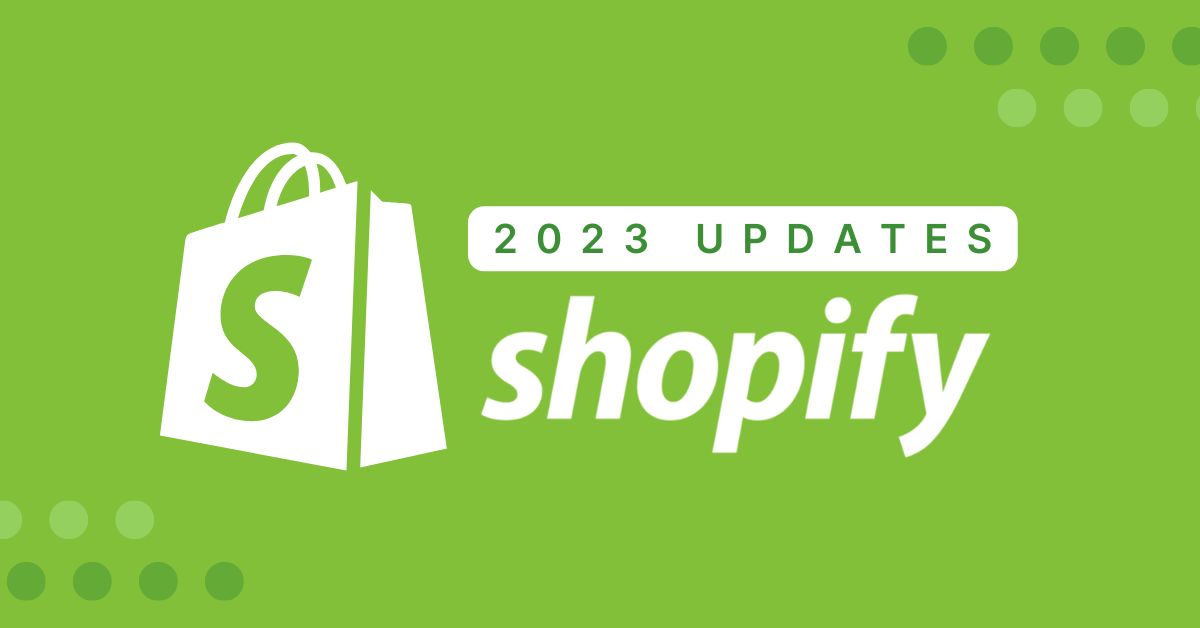Here are the latest Shopify updates you need know about in 2023. Find out what’s new about Shopify’s
- Hydrogen
- Oxygen
- Storefront API
- Shopify Cart
- Mock Store API
- New Functions API
- Metafields and Metaobjects
- API limits
Hydrogen 2 and Oxygen
Shopify has released a new version of Hydrogen, now built on Remix, offering tools, utilities, and best-in-class examples for creating dynamic and high-performance commerce applications. Hydrogen is designed to work seamlessly with Remix, Shopify’s full-stack web framework, and provides a portable React library compatible with other supporting frameworks. It makes Remix Shopify-aware through an integrated Storefront API client and includes a set of Remix-optimized components that utilize design patterns like actions and loaders.
Oxygen serves as a hosting platform for Hydrogen storefronts and can be accessed via the Hydrogen channel. It handles server infrastructure and allows for the management and deployment of Hydrogen storefronts. By deploying a Hydrogen storefront to various Oxygen environments, you can preview and share multiple versions of the storefront.
Hydrogen integrates smoothly with Oxygen and is compatible with any Remix-supported target. Shopify Hydrogen and Oxygen offer developers a comprehensive toolkit for creating headless eCommerce stores, unifying performance, adaptability, and intricate data handling within one platform. This powerful duo could potentially shape the future of e-commerce.
- Hydrogen 2 introduces a new Storefront API client, starter templates, and a CLI for easy setup, as well as Remix-optimized components to simplify complex tasks. Enhanced performance is achieved through Remix-powered features such as optimistic UI, nested routing, and progressive enhancement. Developers can now also take advantage of the Hydrogen React library, which allows for integration with other popular React frameworks like Next.js and Gatsby while offering pre-built React components like Cart, Shop Pay, and Shopify Analytics for headless implementations.
- Shopify has expanded Oxygen hosting availability to include Basic, Shopify, Advanced, and Plus plans. This enables users to deploy their storefronts globally with a single click and at no additional cost, regardless of their store’s size. This improvement makes it even more accessible for businesses to leverage the benefits of Shopify’s Hydrogen and Oxygen platforms.
Hydrogen 2 documentation
GrapghQL Storefront API
The Storefront API enables developers to build custom storefronts using their preferred tools, frameworks, languages, and hosting solutions. It provides access to Shopify’s extensive commerce features, such as localization, subscriptions, and optimized cart, allowing for full creative control over buyer experiences. The Storefront API is now edge-deployed, ensuring rapid load speeds on all devices and delivering fast buyer experiences worldwide.
Supporting both public and private authentication, the Storefront API can be used on the server-side, with the app throttle scaling alongside the Shopify platform for high load requests. This ensures a hassle-free experience when managing high-traffic sales campaigns, regardless of store size or sale volume. Developers can access and manage their Storefront API integration directly from the Shopify admin using Shopify’s official Headless app.
Shopify Storefront API guides and tutorials
Shopify Cart
Shopify Cart, built on the same infrastructure as the Storefront API, offers optimal performance and improved buyer experiences by ensuring seamless integration with storefront and checkout components. Deployed globally, it provides a rapid experience for buyers worldwide. Furthermore, Shopify Cart’s extensibility allows merchants to customize cart logic and behaviors using Shopify Functions and auto-populate preferences to streamline the checkout process. Metafields can be used to extend the cart’s schema with custom values, enabling unique logic during the checkout process or activating a checkout extension.
Shopify Cart developer documentation
Prototype storefronts with sample data via AI
Easily create a demo storefront without the need for setting up a shop or managing server-side code. The Mock.shop API will give you access to sample products, variants, carts, and more.
Shopify’s Mock.shop API
New Functions API
Shopify Functions introduces a revolutionary approach to building unique commerce experiences by allowing developers to integrate custom code within Shopify’s backend operations.
Running on Shopify’s global infrastructure, Functions can handle the largest sales events while maintaining execution times under 5ms. The platform now supports customizations for Product Bundles, Order Routing logic, and Checkout Validation rules, adding to existing capabilities for Discounting, Delivery, and Payment customizations.
To further enhance accessibility, Shopify Functions now supports JavaScript, along with other languages that compile to WebAssembly. This expanded language support makes it considerably easier for existing Shopify developers to incorporate Functions customizations into their applications.
Metafields and Metaobjects
Shopify introduces metaobjects, a versatile method for adding, storing, and managing supplementary structured information or entirely new concepts. Think product features, size charts, complex content, and the like.
Key features for developers include controlling access to custom object models, mixed reference functionality for complex and multi-model references, and the ability to store app-managed data within Shopify using reserved namespaces for metafields and metaobjects.
Metaobjects are currently available in themes using Liquid, Storefront API, and Admin API.
Developer documentation on metaobjects and metafields.
Increased API rate limits
Shopify now offers unthrottled API calls for enterprises using the newly launched Commerce Components and a 10x increase in standard Admin API rate limits for Shopify Plus.
Developer documentation on API rate limits
Need help taking advantage of all these new Shopify updates? scandiweb has expert developers that can take your Shopify store to the next level. Get in touch today or learn about our Shopify Plus services.


Share on: